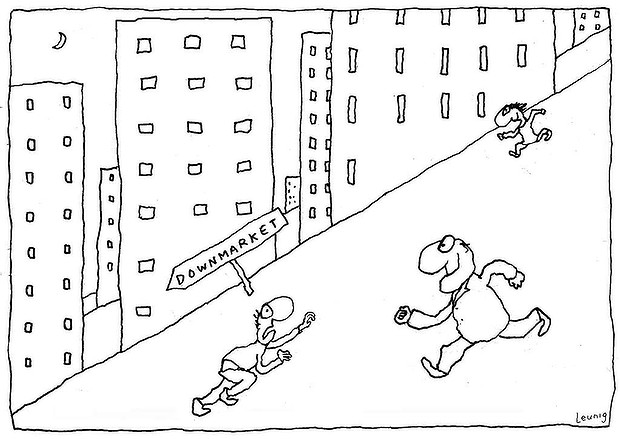Search
Democracy Links
Member's Off-site Blogs
on struggle street .....

First it was the grocery giants, then the petrol retailers, then the banks and the mining companies. Now it's the turn of Big Tobacco to unleash a campaign of mass confusion on the Australian public in an attempt to undermine government reform of an industry.
Leading this latest blitzkrieg of bluster, the boss of British American Tobacco Australia, David Crow, held a press conference to spell out the various ills that will beset this world if the government is successful in having all cigarettes sold in plain packaging.
According to Crow's vision, Australia will be swamped by a tsunami of illegal imports of cheap ''chop chop'' (stop the boats!). Tobacco companies will be forced to slash prices to compete, meaning cheaper cigarettes and more children puffing on fags. Besides, he went on, if you do it, we'll sue you, and where's the evidence it will work anyway?
In a bid to enlist smokers in the fight, Philip Morris Australia, owner of the Marlboro and Benson & Hedges brands, has already set up a website, ideservetobeheard.com.au, where smokers can vent their frustrations.
''The plain packaging idea? Stupid,'' writes ''Jessica'' on the site. ''What exactly is it going to do? Nothing.''
Well, Jessica, if you listened closely to the tobacco companies this week, it appears the one thing plain packaging will do is make it cheaper for you to smoke. Winner!
But the tobacco companies have deliberately crafted one story for smokers and another for non-smokers. The story for smokers goes like this: the price of cigarettes keeps going up and up. It's the meddling government's fault and plain packaging is just another attack on you.
For non-smokers and public health advocates it's like this: if you introduce plain packaging, we'll be forced to slash the price of cigarettes and Asian triads will sell chop chop to your children.
Why do tobacco and junk food companies go to such great lengths crafting advertising campaigns in defence of their right to advertise? Because advertising works.
In a perfectly competitive economic system, advertising serves only to inform consumers of a product's relative merits, and prices reflect demand and supply.
- By John Richardson at 20 May 2011 - 2:04pm
- John Richardson's blog
- Login or register to post comments
Recent comments
1 day 4 hours ago
1 day 6 hours ago
1 day 6 hours ago
1 day 6 hours ago
1 day 7 hours ago
1 day 7 hours ago
1 day 7 hours ago
1 day 15 hours ago
1 day 15 hours ago
1 day 17 hours ago